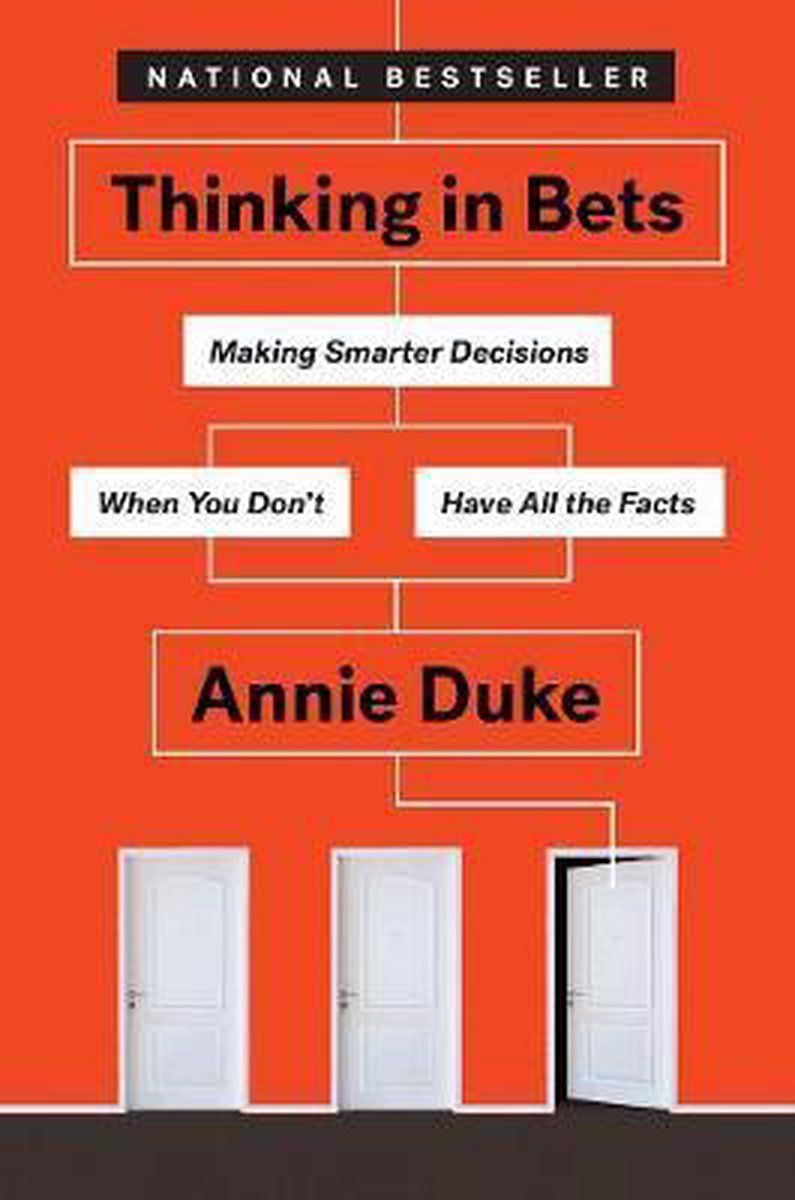Thinking in Bets – Annie Duke

Improving decision quality is about increasing our chances of good outcomes, not guaranteeing them.
In most of our decisions, we are not betting against another person. Rather, we are betting against all the future versions of ourselves that we are not choosing.
How We Form Our Beliefs
This is how we think we form our beliefs:
We hear something
We think about it and then determine whether if it is true or false
We form our belief
Only sometime later, if we have the time or the inclination, we think about it and then determine whether it is true or false
Our pre-existing beliefs influence the way we see the world and the way we make decisions.
The Rashomon Effect
Even when people experience the same event at the same time, if you ask them about it, you will often get two very different accounts of what happened.
That’s because the way we interpret the world is not only a function of our objective experience but also includes how we see and choose to understand the world.
Thinking In Bets: The Buddy System
It is important to have a go-to group of people with a common interest in betting.
The characteristics of a good group to practice truth-seeking with are:
A focus on accuracy (over confirmation), which includes rewarding truth-seeking, objectivity, and open-mindedness within the group
Accountability for which members have advance notice
Openness to a variety of ideas
Once we are a part of a group that regularly reinforces exploratory thought, the routine becomes reflexive, running on its own.
All Decisions Are Bets
A bet is a decision about an uncertain future. Thus, most of the decisions in your life—switching jobs, choosing a partner, selecting your field of study, not doing something—are bets.
They’re choices that you make in the face of an uncertain future.
Thinking in bets starts with recognizing that there are exactly two things that determine how our lives turn out: the quality of our decisions and luck. Learning to recognize the difference between the two is what thinking in bets is all about.
What makes a decision great is not that it has a great outcome. A great decision is the result of a good process, and that process must include an attempt to accurately represent our own state of knowledge. That state of knowledge, in turn, is some variation of “I’m not sure.”
Blind-Spot Bias
People are better at recognizing biased reasoning in others but are blind to it in themselves.
Being smart can actually make bias worse. Blind-spot bias gets worse the smarter you are.
Being smart and aware of your capacity for irrationality alone doesn’t help you refrain from biased reasoning.
Resulting
“Resulting” means judging the quality of a decision based on the quality of the result.
Our tendency is to equate the quality of a decision with the quality of its outcome. This prevents us from accurately assessing the quality of our decisions and the role of luck in the outcomes we achieve.
Life is Poker, Not Chess
Life is not like chess. Chess contains no hidden information and very little luck.
Life is more like poker. You could make the smartest, most careful decision and still have it blow up in your face.
